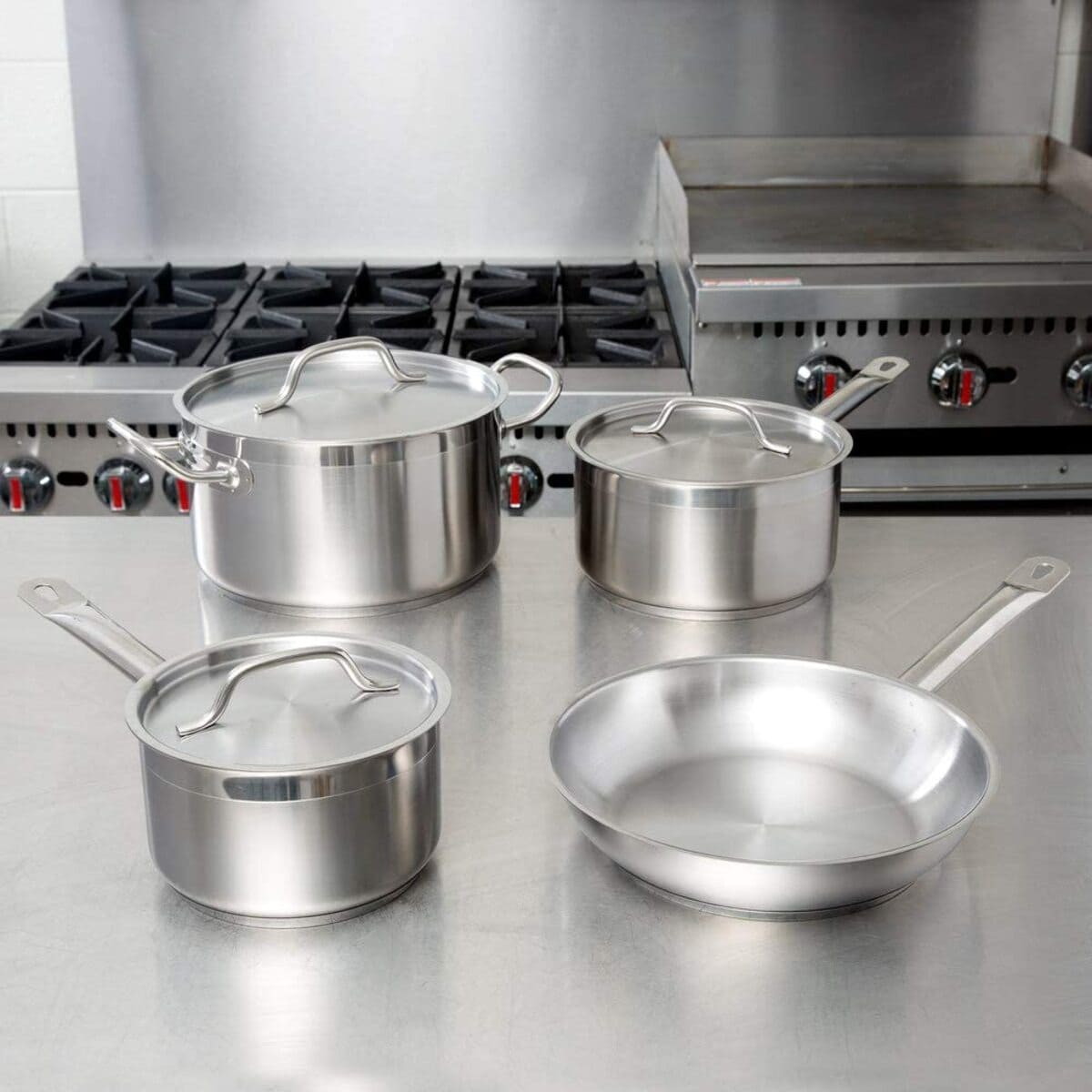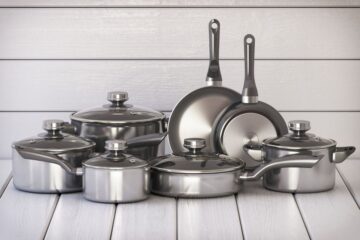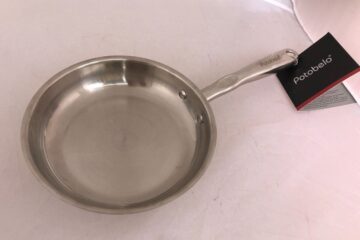Induction cooking has become increasingly popular in recent years, and with it, the need for induction-ready cookware. But what exactly is induction-ready cookware and how does it differ from traditional cookware?
Induction cooking uses magnetic fields to generate heat, rather than gas or electric burners. This means that in order for cookware to work on an induction cooktop, it must be made with a magnetic material. Induction-ready cookware is designed with this in mind, typically made with materials such as stainless steel or cast iron that are magnetic and will work with an induction cooktop.
What is Induction-Ready Cookware?
Induction cooking is a popular method of cooking that uses an electromagnetic field to heat up cookware. This technology is more efficient than traditional methods of cooking because it heats up the cookware directly, rather than heating up the air around it. Induction-ready cookware is designed to work with induction cooktops, and it is made of materials that are magnetic.
How Does Induction Cooking Work?
Induction cooking works by using an electromagnetic field to create heat. When an electric current flows through a coil of wire, it creates a magnetic field. When a piece of magnetic material, such as iron or steel, is placed in the magnetic field, the magnetic field induces an electrical current in the metal. This current creates heat, which is transferred to the food in the cookware.
What Makes Cookware Induction-Ready?
To be induction-ready, cookware must be made of a magnetic material, such as cast iron or stainless steel. Aluminum and copper are not magnetic and will not work with induction cooktops. Cookware must also have a flat bottom to make good contact with the cooktop. Induction cooktops can detect the presence of cookware and will not heat up if there is no cookware on the surface.
Some cookware is labeled as “induction-ready” or “induction-compatible” to make it easier for consumers to choose the right cookware for their needs. However, it is important to note that not all cookware labeled as “induction-ready” will work with all induction cooktops. It is always a good idea to check the manufacturer’s specifications to ensure that the cookware is compatible with the cooktop.
Benefits of Induction-Ready Cookware
Induction cooking has been gaining popularity in recent years, and with good reason. Induction-ready cookware offers a variety of benefits that make it an attractive option for both professional chefs and home cooks alike. Here are some of the benefits of induction-ready cookware:
Energy Efficiency
One of the biggest advantages of induction cooking is its energy efficiency. Induction cooktops heat up much faster than gas or electric stovetops, and they transfer heat directly to the cookware. This means that less heat is lost to the surrounding air, which translates to less wasted energy and lower electricity bills. In fact, induction cooking is up to 50% more energy-efficient than gas or electric cooking.
Controlled Cooking Temperature
Induction cooking also offers precise temperature control, which is important for achieving perfect results when cooking. With induction cookware, you can easily adjust the temperature to the exact degree you need, which is especially important for delicate dishes that require precise temperature control.
Safety
Induction cooking is also safer than gas or electric cooking, as there is no open flame or exposed heating element. The cookware is heated through a magnetic field, which means that the cooktop itself does not get hot. This reduces the risk of burns and other accidents in the kitchen.
Ease of Use
Induction cooking is also incredibly easy to use. The cookware heats up quickly and evenly, which means that you can start cooking right away. Induction cookware is also easy to clean, as there are no grates or burners to clean. Simply wipe down the cooktop with a damp cloth and you’re done.
Types of Induction-Ready Cookware
When it comes to induction cooking, not all cookware is created equal. Some materials are better suited for induction cooking than others. Here are the most common types of induction-ready cookware:
Stainless Steel
Stainless steel is a popular choice for induction cookware due to its durability and versatility. Look for stainless steel cookware that is labeled as “induction-ready” or “magnetic.” Some stainless steel cookware may have a layer of magnetic material on the bottom to make it compatible with induction cooktops.
Cast Iron
Cast iron is another great option for induction cooking. It heats evenly and retains heat well, making it ideal for searing, frying, and sautéing. Cast iron cookware is also very durable and can last for generations with proper care. Look for cast iron cookware that is labeled as “induction-ready” or “magnetic.”
Copper
Copper cookware is not typically induction-compatible on its own, but some manufacturers make copper cookware with a layer of magnetic material on the bottom to make it compatible with induction cooktops. Copper is an excellent conductor of heat, making it ideal for cooking delicate sauces and soups.
Aluminum
Aluminum cookware is not induction-compatible on its own, but some manufacturers make aluminum cookware with a layer of magnetic material on the bottom to make it compatible with induction cooktops. Aluminum is a lightweight and affordable option for cookware, but it may not be as durable as other materials.
Choosing Induction-Ready Cookware
When it comes to choosing induction-ready cookware, there are a few factors to consider to ensure that you get the best performance from your cookware and your cooktop. Below are some sub-sections to help guide you in your decision-making process.
Compatibility with Your Cooktop
The first and most important factor to consider when choosing induction-ready cookware is compatibility with your cooktop. Not all cookware is compatible with induction cooktops, so it’s important to check the compatibility of your cookware before purchasing it. Induction cooktops require cookware made of magnetic materials, such as cast iron or stainless steel.
Quality and Durability
Another important factor to consider is the quality and durability of the cookware. Induction cooking requires high-quality cookware that can withstand high temperatures and frequent use. Look for cookware that is made of high-quality materials and has a sturdy construction.
Cooking Needs and Preferences
When choosing induction-ready cookware, it’s also important to consider your cooking needs and preferences. Do you need a set of cookware that includes a variety of pots and pans for different cooking techniques? Do you prefer non-stick cookware for easy cleaning? Do you need cookware that is oven-safe? Consider your cooking needs and preferences to ensure that you choose the right cookware for you.
Price
Finally, price is an important factor to consider when choosing induction-ready cookware. Induction cookware can be more expensive than traditional cookware, but the investment is worth it for the benefits of induction cooking. Consider your budget and look for high-quality cookware that fits within your price range.
By considering these factors, you can choose the best induction-ready cookware for your needs and ensure that you get the best performance from your cookware and your induction cooktop.
Conclusion
In conclusion, induction-ready cookware is a type of cookware that can be used on induction cooktops. This cookware is made of ferrous metals like cast iron and stainless steel, which are attracted to magnets. Induction cooktops generate heat using a magnetic field, so only magnetic cookware can be used on them.
When shopping for induction-ready cookware, it is important to look for the induction symbol or check if the cookware is magnetic. Some non-magnetic cookware may have a layer of magnetic material added to the bottom to make it compatible with induction cooktops, but it may not work as well as true induction-ready cookware.
Induction-ready cookware is a great choice for those looking for a fast, efficient, and safe way to cook. It heats up quickly and evenly, and there is no open flame or hot surface, making it safer for households with children or pets. Additionally, induction cooktops are energy-efficient and can save you money on your energy bills in the long run.
Overall, if you are considering purchasing an induction cooktop, it is important to invest in induction-ready cookware to get the most out of your appliance. With a wide variety of options available on the market, you are sure to find cookware that fits your cooking needs and personal style.



